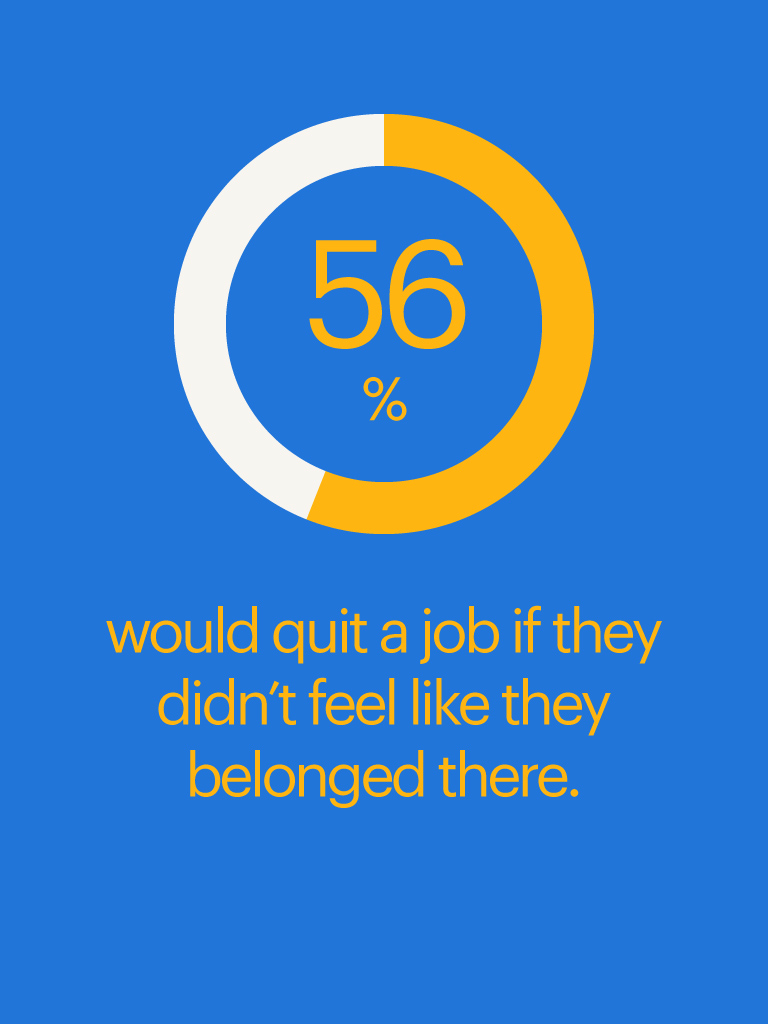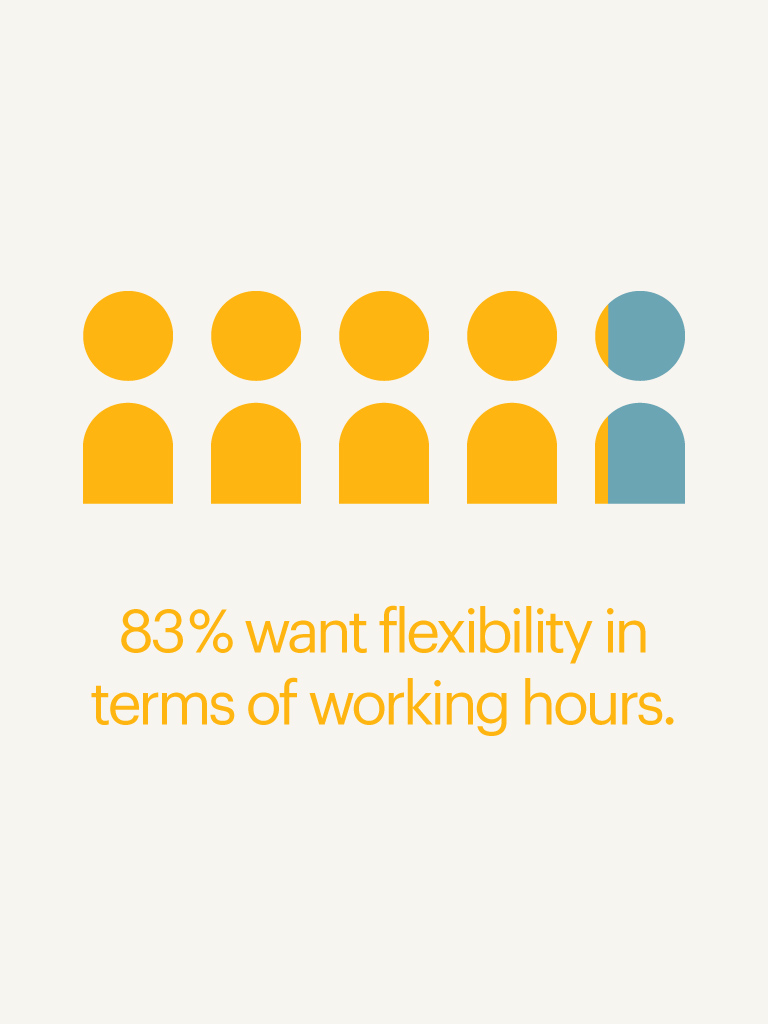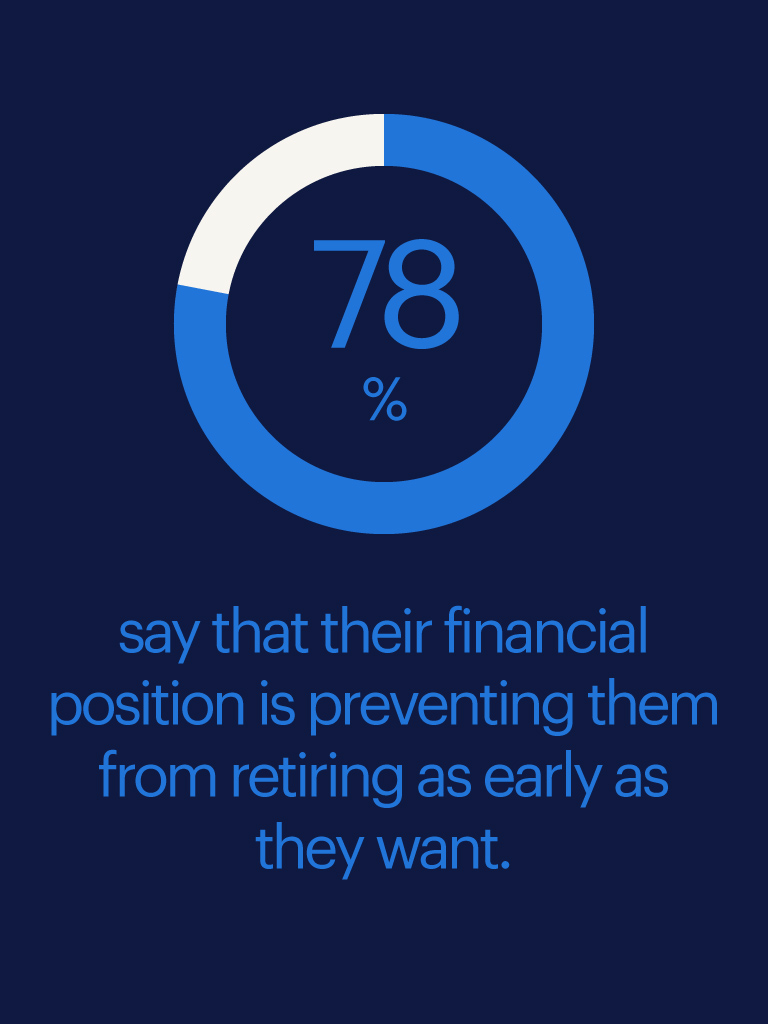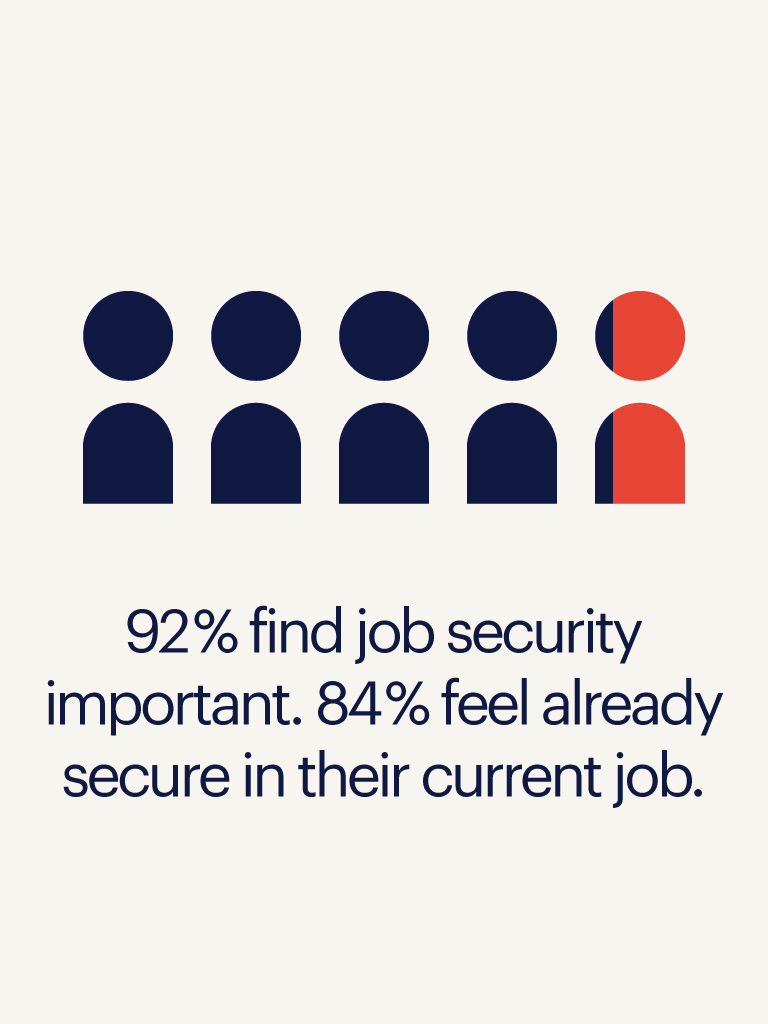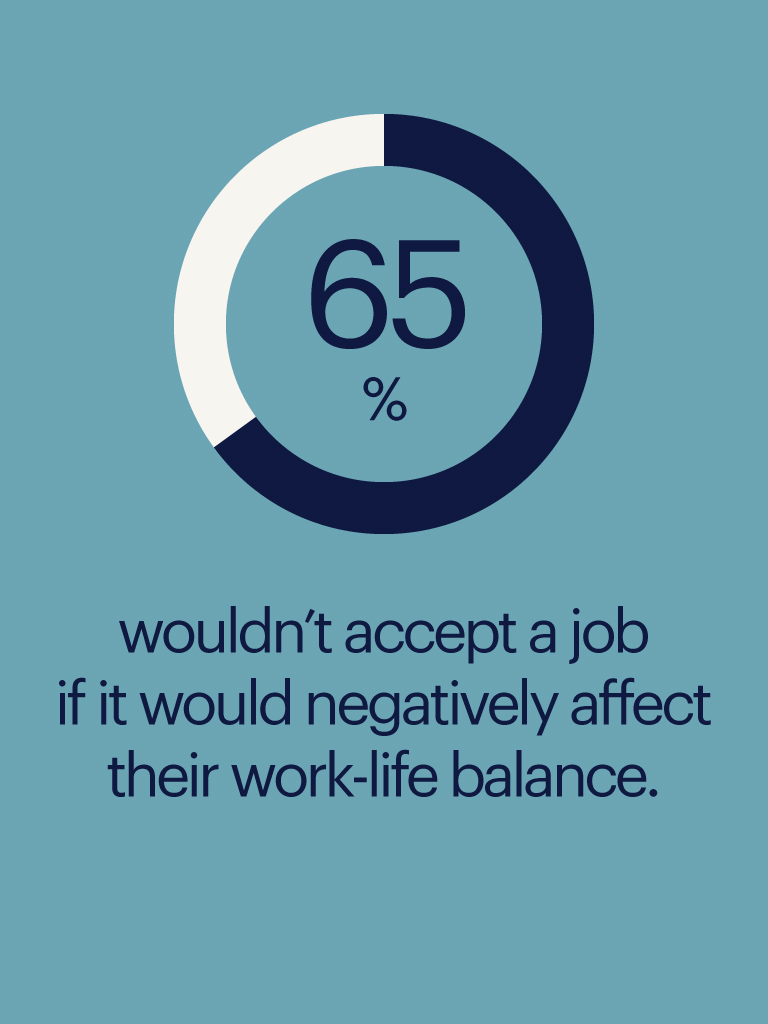this will preoccupy workers in 2023
-
attitude
focus on work-life balance
Despite economic uncertainties, work-life balance continues to be a priority for employees. Half (50%) of all respondents in Switzerland would quit their jobs if work prevented them from enjoying their lives. 34.2% actually quit their job because of the negative impact it had on their lives.
Another 65% of Swiss workers would not accept a job in the first place if they believed it would affect their work-life balance. This is 5% higher than the global average (60%).
Quiet quitting is a less important topic in Switzerland than it is worldwide, but at least 28% (globally 31%) say that they have already internally quit their jobs.
A global comparison also shows that Swiss people attach less importance to their jobs. 64% of respondents in Switzerland say that their job is important to them, compared to 72% worldwide.
-
expectations
flexibility is here to stay
The pandemic has left a lasting legacy: employees can no longer imagine a workday without flexibility - but can companies keep up with this?
83% of Swiss respondents want flexibility when it comes to their working hours, but only 55% agree that their current job meets this requirement. Almost half (48%) would reject a job if it did not offer flexible working hours.
Even though our demands regarding compensation are lower in comparison to our neighboring countries and to the global view, due to the current economic situation, at least 39% of employees in Switzerland want a monthly increase in support for cost of living. 42% already receive such support or similar from their employer.
-
security
the Swiss are in a privileged position
The Swiss feel relatively calm about the current economic turmoil. In Switzerland, 84% consider that they have security in their current position and only 23% are worried that they could lose their job due to the current uncertainties. In Germany this figure is 51%, and while there is less concern in France and Italy, at 34% and 25%, their worries are still higher than here.
48% of respondents also feel confident that they would find a new position quickly if they lose their current job. Nevertheless, 92% of the study participants in Switzerland think that job security is important and far more than half (58%) would not even accept an insecure position.
A not inconsiderable amount of respondents are considering increasing their number of working hours (16%) or looking for a second job (15%) to cover the rising cost of living.
-
retirement
financial situation prevents early retirement
The cost-of-living crisis is also affecting attitudes towards retirement. Only 51% of Swiss employees think they will be able to retire before the age of 65, while 88% want to retire before the age of 65. 13% even plan to retire later to cover rising costs. Two percent said they do not plan to retire at all.
78% say their financial situation is preventing them from retiring when they want. Only 24% say they need work as part of their life, and therefore do not want to retire.
-
belonging
there must be shared values
Despite some concerns about job security and the difficult economic situation, it is more important for employees to share their company's values and goals, such as diversity, transparency and sustainability. Three quarters (75%) of Swiss employees say that this is important to them.
For the vast majority (71%), this factor is fulfilled in their current job, but over half (57%) would quit if they were not able to identify with their company's values. In neighboring countries, these figures are around 10% below the Swiss level.
When asked about a sense of purpose, 55% said that their current employment is meaningful to them, with 75% desiring a sense of purpose in their job.

